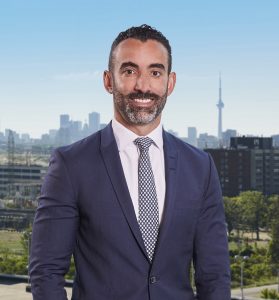Amid the global pandemic of COVID-19, I am reminded of my time in New Orleans in 2005 experiencing Hurricane Katrina. At the time, I was a young diplomat, working in the Panamanian Consulate, thrust into one of the most formative personal and professional experiences I had ever faced. I led efforts in coordination with the US State Department, FEMA, State Police, and Red Cross for search, rescue and relocation of dozens of Panamanians families affected. It is difficult to overstate the toll that the months-long shut-down and city evacuations took on the displaced and unhoused people who lived through Katrina. However, what came out of that severe strife was an unshakable belief in the resilience of communities – their ability to stay connected, and their relentless commitment to helping one another. Today, New Orleans has been rebuilt, its residents have reestablished their lives, and most traces of the wreckage and debris have now disappeared, leaving behind memories of courage, strength and unity.

New Orleans, U.S.A.
During the past few weeks, I’ve been reflecting about my journey as an immigrant to Canada in 2010 and my transition into the Higher Education sector at McGill University in Montreal and, now, at York University in Toronto. I realized that living through Katrina provides apt lessons to foster the strength and resilience of our community at the York University English Language Institute. These unprecedented times push all our boundaries. Today, more than ever, the world needs stories of resilience, courage, recovery, and love. When humanity is tested with adversity and grief, as it currently is, some find comfort in tales of individuals who have been at the bottom and who have resurfaced, stronger and kinder. It restores our collective faith towards one another. Many of us are struggling with anxieties, fears, concerns for loved ones, and perhaps handling immuno compromised systems. Staying connected offers opportunities for dialogue, ways to think about caring for each other, spaces to ask new questions and pose old ones.
An estimated 100,000 students were displaced by Katrina after the levees failed. According to UNESCO, over 160 countries have implemented nationwide closures due to coronavirus, impacting over 87% of world’s student population. While most Canadian Universities switched to online instruction with only three weeks remaining in the semester, our Institute is instead in the middle of its term. Our plan was not to simply wrap up the semester as efficiently as possible. Our goal was to deliver to our students what we promised with a great deal of consideration to do our utmost to protect the health and safety of our community. So, for the first time in our 35-year history, we transferred all our regular courses, extracurricular programming, and student services to digital platforms within days. We collectively gathered our thoughts, ideas, and capitalized on our diverse skills to make this transition. Managers, instructors, and staff made innovative use of online technologies and other ingenious strategies to carry on with teaching and learning activities without compromising quality.
Our team have been in constant communication with students to update and figure out arrangements for those who might have difficulty accessing online platforms. Across our sector, the transformations we have achieved in the last few days is nothing short of remarkable. Learning should always emphasize community care, and these are just some of the ways we are putting it into practice.
We are carrying out ‘learning as usual’ — in very unusual times. We don’t know what will happen next or how long it will take to get through the pandemic. Living through Katrina, I learned that returning to normalcy is not going to happen quickly, and, for most of us, what is considered normal likely will be redefined forever. We should embrace this state of uncertainty as an opportunity. Instead of succumbing to panic and fear, let us instead ask how we can continue to help each other in this time of need and how we can maintain a strong community that supports each other.
Our community will continue to make the best decisions we can, even in circumstances that are changing at a speed that would have been unimaginable a short time ago. The coming days and weeks will no doubt bring further challenges. But through cooperation, compassion, perseverance, and determination— I am confident that this will undoubtedly build our resilience as a caring community.

Isaac Garcia-Sitton
Isaac Garcia-Sitton is a second year PhD student in the Graduate Program in Language, Culture & Teaching in York University’s Faculty of Education and is the current Director of International Education & English Language Institute (YUELI) at York University’s School of Continuing Studies. His research interest is the role of cities in attracting international students and the differences and intersections that post-secondary institutions’ internalization strategies play in supporting these efforts. Born in Barcelona, raised in Panama, and trained and educated in the United States, Garcia-Sitton served as a diplomat for Panama, working at the Consulates in New Orleans in 2005 and in Montreal in 2007.
